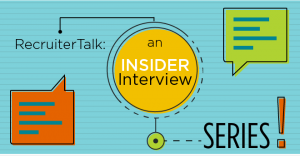MightyRecruiter spent some time with Rose Dougherty, a recruiter with significant experience finding and attracting talent for General and Administration roles such as finance, legal, marketing, and human resources. In this interview, Rose shares with us valuable insights into the basics of reviewing resumes in order to create a pool of qualified candidates.
Q: What types of hard criteria do you use as an initial filter when reviewing resumes submitted for a particular position?
A: This is a two-step process, really. I review the job description and the list of skills and experience required for the job, as well as meet with the hiring manager to determine the keywords, skills, and certain aspects that will be unique to the position. Meeting with the hiring manager is essential to paring down the list of candidates. Sometimes the job description doesn’t always capture what the hiring manager is looking for, so it’s good to understand some of those more difficult-to-describe aspects of a good candidate before diving into the resume review process.
Q: What is your list of “red flags” on a resume?
A: In order of importance:
- Spelling errors. The details are important here. I’d rather catch them than have a hiring manager point it out. Attention to detail is key, and a candidate is selling themselves via their resume.
- Formatting. If a resume has different font sizes and alignment issues, I still continue to read for content and experience. A resume needs to look clean and presentable, so if a candidate’s experience is a match for what we are looking for, I will point out formatting inconsistencies to the candidate during the recruiter phone screen.
- Non-contract, short assignments. If I see a lot of short hiring assignments that are not clearly described as contract work, I’m concerned about the candidate’s longevity in our potential role. Again, depending on relevant experience to our role, I will connect with them for a better understanding of the assignments. I don’t want a job hopper but I also want to understand the circumstances, sometimes it just happens!
Q: What do you look for in a cover letter?
A: I don’t require a cover letter, but I will read it if it is included. Cover letters are key to a better understanding of candidate’s situation. For instance, if someone isn’t local to the role, but details their willingness to relocate in the cover letter, I will move forward with it.
Q: What is your basic strategy for a phone screen?
A: A phone screen is the preliminary conversation in validating an applicant’s resume and position interest. It has three components: to address HR-related questions, to ask role-specific and experience questions, and finally to determine a potential culture fit. I confirm the candidate’s location, and ask them some questions about their experience with regards to the role – this is why it’s important to talk to the hiring manager, to get a better understanding of what to ask and what to listen for – and finally, I try to get a general idea of their potential fit within our company.
Q: What types of questions do you ask to determine culture fit?
A: The way a candidate answers the questions can be very telling. I am the beginning of this process. I like to hear a candidate’s genuine interest in the company: have they read about us on LinkedIn, Glassdoor, etc.; can they articulate what we do; is it clear why they are interested in us as a company as well as the role. I’m the first pass, so I listen to their answers to my questions, and also pay close attention to the questions they ask me. A good way to summarize this: did they do their homework on us? Will they be a good fit into our team/culture based on their responses? When I describe our company culture and perks, I take note of their responses/additional questions.
Q: What is the one screening question that really helps you make a decision whether to move forward with a candidate?
A: The one question I rely on is what questions do they have for me. The types of questions that the candidate asks shows how much research they have done on our company, our culture, and the type of business that we participate in.
 MightyRecruiter
MightyRecruiter




Leave a Reply